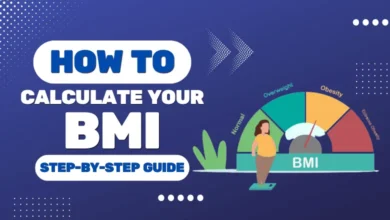Incorporating Physical Therapy into Postpartum Recovery Plans

The postpartum period is a critical time for new mothers, as it involves both physical and emotional recovery. While many focus on the joys of welcoming a new baby, it’s equally important for new mothers to take care of their own health and well-being. One highly effective way to ensure a smoother recovery process is through physical therapy. In this article, we will explore the benefits of incorporating physical therapy into postpartum recovery plans and how it can help women regain strength, mobility, and confidence in their bodies.
The Importance of Postpartum Physical Recovery
After childbirth, the body undergoes significant changes, some of which can lead to discomfort or long-term physical challenges. Whether a mother had a vaginal delivery or a cesarean section, the body needs time to heal and restore balance. For many women, physical therapy offers a structured approach to aid in this process.
Physical therapy focuses on restoring muscle strength, improving posture, and addressing issues such as pelvic floor dysfunction or incontinence. Additionally, it can help alleviate common postpartum issues like back pain, neck pain, and abdominal weakness, which can develop due to pregnancy and childbirth. Incorporating physical therapy into a postpartum recovery plan is an effective way to ensure that women regain their physical function and overall well-being.
Benefits of Physical Therapy After Childbirth
1. Restoring Core Strength
One of the most significant impacts of pregnancy on the body is the strain it puts on the abdominal muscles. During pregnancy, the abdominal muscles stretch to accommodate the growing baby. After childbirth, many women experience weakened or separated abdominal muscles, a condition known as diastasis recti. Physical therapy can help address this condition by focusing on exercises that strengthen the core muscles, restore abdominal integrity, and improve posture.
A well-designed physical therapy program will gradually re-engage the core muscles, which is essential for stabilizing the body and improving daily function. This process may involve breathing exercises, pelvic tilts, and other core-strengthening activities that are gentle but effective in regaining strength.
2. Improving Pelvic Floor Health
The pelvic floor muscles undergo significant stress during pregnancy and childbirth. In many cases, these muscles can become weak or even damaged, leading to issues like urinary incontinence, pelvic pain, or difficulty with sexual function. Pelvic floor rehabilitation is a key aspect of postpartum physical therapy, focusing on strengthening these muscles to restore normal function.
Through targeted exercises and techniques, physical therapists can help women improve pelvic floor strength, alleviate pain, and reduce the risk of incontinence. These exercises often involve learning how to properly engage the pelvic floor muscles, as well as performing gentle stretches and strengthening routines.
3. Easing Musculoskeletal Pain
After childbirth, many women experience musculoskeletal pain, especially in the lower back, hips, and shoulders. This pain can result from the changes in posture during pregnancy, carrying a baby, and the physical demands of caring for an infant. Postpartum physical therapy can address these issues by helping mothers correct postural imbalances, stretch tight muscles, and strengthen weakened areas.
A physical therapist may also use techniques like manual therapy, massage, and joint mobilizations to relieve pain and improve range of motion. This holistic approach can be incredibly effective in helping new mothers feel more comfortable and mobile in their bodies.
How Physical Therapy Helps with Postpartum Mental Health
The benefits of physical therapy extend beyond just physical recovery. In many cases, postpartum women may experience feelings of fatigue, anxiety, or even depression. Participating in physical therapy can help improve mental health by releasing endorphins, which are natural mood boosters.
In addition to the physical benefits, physical therapy can offer an opportunity for mothers to focus on themselves for a brief period. This time spent in a supportive environment, working on their own health and recovery, can be an essential part of restoring confidence and emotional well-being.
How to Incorporate Physical Therapy into Your Postpartum Recovery Plan
1. Consult Your Doctor
Before beginning any physical therapy program, it’s important to consult with your healthcare provider to ensure that it is safe for you to do so. Your doctor can provide guidance on when it is appropriate to start physical therapy based on your individual recovery process. Typically, it is recommended to wait until you’ve had your six-week postpartum checkup before starting physical therapy.
2. Choose a Qualified Physical Therapist
Choosing a physical therapist with experience in postpartum care is crucial. Look for a provider who specializes in women’s health or pelvic floor therapy. A therapist with expertise in postpartum recovery will be able to tailor a program specifically to address your unique needs and challenges.
3. Stay Consistent with Your Exercises
Physical therapy requires dedication and consistency to see the best results. Make sure to follow your therapist’s recommendations and practice the exercises regularly. It may take time to notice improvements, but sticking to your plan is key to achieving long-term benefits.
Exploring Additional Resources for Postpartum Recovery
For those looking for additional support, there are many resources available that can enhance the recovery process. A great option is Mountain Top physical therapy, which offers specialized services for postpartum recovery, including pelvic floor rehabilitation, core strengthening, and musculoskeletal pain relief. Seeking out such specialized services can make a significant difference in a woman’s recovery journey.
Conclusion
Incorporating physical therapy into postpartum recovery plans can help women recover more effectively and regain their strength and confidence. Whether addressing core strength, pelvic floor health, or musculoskeletal pain, physical therapy provides a holistic and supportive approach to recovery. By working with a qualified therapist, new mothers can create a personalized plan that addresses their specific needs, promoting physical and mental well-being during the crucial postpartum period.
Postpartum recovery doesn’t have to be done alone – with the right support, women can navigate this important phase of life with strength and ease.
Need inspiration? Check out our latest insights and guides.






